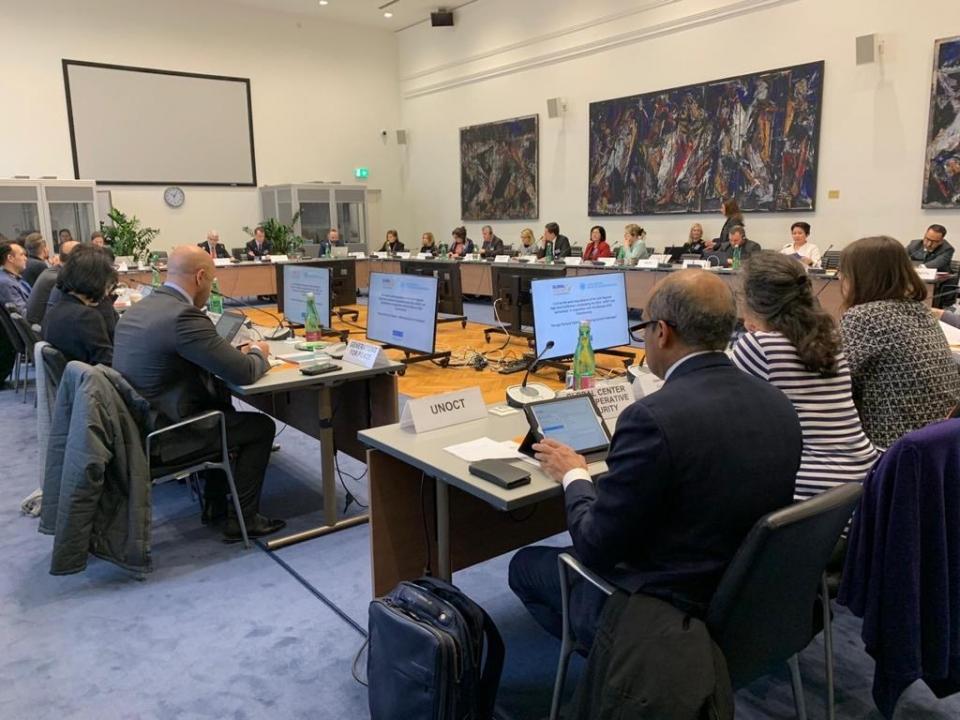
“When we have included civil society partners in our work, we have always benefited from their independent perspectives, and while there is wide recognition of the valuable contribution that can be made by civil society, much work remains to be done,” stated the Counter-Terrorism Committee Executive Directorate (CTED) during the civil society workshop organized in advance of the Joint Regional High-Level Conference on Foreign Terrorist Fighters (FTFs) held in Vienna, Austria on 10 February 2020. The consultation was organized by the United Nations Office of Counter-Terrorism (UNOCT), with the support of the Global Center on Cooperative Security and the Organization for Security and Cooperation in Europe (OSCE).
The one-day workshop for civil society representatives provided an opportunity for participating civil society representatives to reflect on their experiences in addressing the challenges of returning and relocating FTFs and their families. The goal of the workshop was to facilitate perspectives from the field, ensuring that different voices from civil society and other local actors were heard, and to promote collaboration and cooperation among civil society organizations, and by them with governments and international and regional organizations.
In accordance with Security Council resolutions, including 2395 (2017), CTED has been engaging with non-governmental actors, including civil society actors, for many years, and encouraging governments to do so, as part of their overall strategies to effectively counter and prevent terrorism, based on a whole-of-society approach.
CTED participated as a panellist during one of the sessions and focused on its engagement with civil society. CTED expressed concern that civil society organizations faced major challenges in the counter-terrorism context and referred to the use of repressive measures by some States against lawful non-violent activities of civil society, in particular women’s civil society organizations. CTED highlighted the importance of engaging with civil society in overall strategies to counter and prevent terrorism and violent extremism, including in addressing current challenges relating to FTFs.
The workshop preceded the larger Joint Regional High-Level Conference on “Foreign terrorist fighters (FTFs) – addressing current challenges” held by OSCE, UNOCT and Switzerland, in cooperation with the Albanian OSCE Chairmanship, on 11 and 12 February 2020 in Vienna, Austria. The Executive Director of CTED, Assistant Secretary-General Michèle Coninsx, delivered the keynote statement and highlighted CTED’s Guidelines to facilitate the use and admissibility as evidence in national criminal courts of information collected, handled, preserved and shared by the military to prosecute terrorist offences. ASG Coninsx shared examples of challenges in the use of military evidence, and underlined the need for the military to respect international human rights in this regard. The CTED Executive Director also delivered opening remarks during a side event on “Training guides on the investigation and prosecution of FTFs through sharing of electronic evidence”, organized on the margins of the conference by the United Nations Office on Drugs and Crime (UNODC), in collaboration with OSCE and CTED. ASG Coninsx informed participants about the Global Initiative on “Digital evidence”, jointly implemented by CTED, UNODC and the International Association of Prosecutors (IAP).

